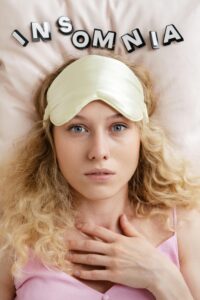 Sometimes the stresses, pressures and demands at work or at home can interfere with our good sleep.
Sometimes the stresses, pressures and demands at work or at home can interfere with our good sleep.
Stress manifests on the physical level by an outpouring of adrenal gland hormones such as cortisol.
The adrenal glands are two small triangular-shaped glands that sit on top of each kidney. During those times when stress hormones are poured into the body, they can deplete our calcium levels — a mineral known to help with relaxation and good sleep.
The adrenal hormone cortisol has a stimulating effect and can promote wakefulness at the very time when one is trying to fall asleep or stay asleep during the night. Scientists have recently discovered that increased blood levels of cortisol exist in people with chronic insomnia.
In one recent study in the Journal of Clinical Endocrinology & Metabolism, investigators monitored the sleep of eleven patients with insomnia and thirteen people without sleep disorders. Blood was collected every thirty minutes for twenty-four hours, and levels of adrenal stress hormones were monitored.
They found the level of adrenal hormones were significantly higher in the people with insomnia as opposed to the group that slept well. The insomniacs with the highest degree of sleep disturbances produced the highest amounts of cortisol in the nighttime hours.
Another aspect is that it appears people become more sensitive to the stimulating effects of cortisol as they age. Researchers at the Pennsylvania State University found that when both young and middle-aged men were administered a version of cortisol, the middle-aged men remained awake longer and slept less deeply than the younger ones.
This finding applies to aging women as well, who tend to experience insomnia and sleeplessness as a significant aspect of their premenopause and menopause symptoms.
From a nutritional perspective, the mineral calcium has long been known as a natural aid to relaxation and sleep and is directly related to our cycles of sleep. In one study published in the European Neurology Journal, researchers found that calcium levels in the body are higher during some of the deepest levels of sleep, such as the rapid eye movement (REM) phase.
The study concluded that disturbances in sleep, especially the absence of REM deep sleep or disturbed REM sleep, are related to a calcium deficiency. Restoration to the normal course of sleep was achieved following the normalization of the blood calcium level.
Research in the American Journal of Physiology reveals that in the presence of elevated cortisol levels, the amount of calcium is rapidly reduced in the body.
Studies have shown that calcium declines for as long as the cells are exposed to cortisol, but promptly return to its normal level once the stress hormone is removed. In light of recent discoveries about the relationship between stress hormones and calcium depletion, it’s likely that nighttime calcium levels can be restored and insomnia calmed by supplementing with a highly absorbable form of calcium.
One natural sleep aid that is gaining popularity due to its readily assimilated forms of calcium and magnesium is Sleep Minerals II from Nutrition Breakthroughs.
This insomnia remedy contains easily absorbed forms of calcium and magnesium mixed with healthy oils in a softgel, making it more absorbable than tablets or capsules and providing a deeper, longer-lasting sleep. It also calms the nerves and muscles and reduces restless leg syndrome and menopause insomnia.
L.R.C. of Massachusetts says: “Due to some very stressful issues in my life, I hadn’t slept much in two and a half months before being prescribed sleeping drugs. I had become dependent on them and couldn’t sleep without them. I did my research on the Internet and came across Sleep Minerals II. I take these before bed and now I can sleep through the whole night without drugs. And if I do have to get up, I can fall right back asleep. Another benefit is it also helps alleviate my chronic fatigue and aches and pains.”
Some other good tips to support one’s health and well-being in stressful times include eating nourishing foods such as brightly colored vegetables and healthy proteins, taking food supplements like B complex vitamins, vitamin C and magnesium, and doing some enjoyable daily exercise such as walking.
For more information, visit the Sleep Minerals II page.


